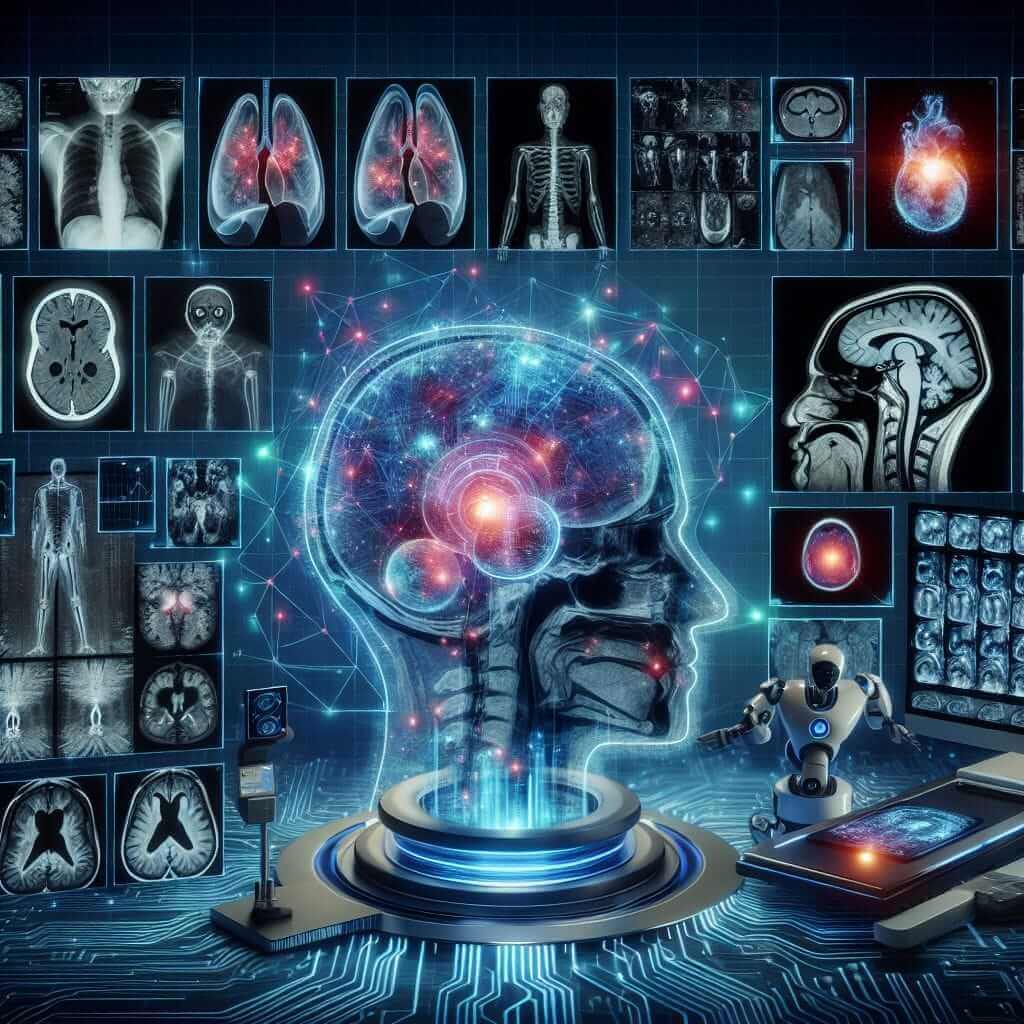The IELTS Reading test is a critical part of the overall IELTS exam, designed to assess your ability to read and comprehend academic texts. Over the years, topics related to science and technology have become increasingly common in IELTS Reading passages. One such topic is the use of Artificial Intelligence (AI) in medicine and its impact on patient care.
Recent data suggests a growing interest in the application of AI in healthcare, making this a timely and relevant topic. Understanding this subject not only helps you prepare for the IELTS Reading section but also keeps you informed about significant advancements in medical technology.
In this article, we will create a comprehensive IELTS Reading practice test focused on the question: “How does the use of AI in medicine impact patient care?” We’ll provide a detailed passage, questions in various formats, answer keys, and explanations. Additionally, we’ll discuss common mistakes and essential vocabulary and grammar points.
Creating the IELTS Reading Test
Practice Passage: The Use of AI in Medicine and Its Impact on Patient Care
AI’s Role in Enhancing Patient Diagnosis and Treatment
Artificial Intelligence (AI) has found numerous applications in medicine, particularly in improving patient care. AI systems are capable of analysing vast amounts of medical data faster and more accurately than humans, leading to more efficient and accurate diagnoses.
One significant application of AI is in medical imaging. Algorithms can detect abnormalities in X-rays, MRIs, and CT scans with higher precision, thus aiding radiologists in identifying conditions like tumors and fractures more reliably. Moreover, AI is used in personalized treatment plans, analysing patient data to recommend the most effective treatments based on historical data and predictive analytics.

AI and Patient Monitoring
Another crucial area where AI impacts patient care is in continuous monitoring. Wearable devices equipped with AI can track vital signs such as heart rate, blood pressure, and glucose levels in real-time. This not only provides immediate feedback to patients but also alerts healthcare providers to any anomalies, allowing for prompt intervention.
Challenges and Ethical Considerations
Despite its advantages, the use of AI in medicine is not without challenges. Issues such as data privacy, the need for high-quality data, and the potential for AI systems to malfunction raise significant ethical and practical concerns. Ensuring that these technologies are used responsibly and effectively is paramount for maximizing their benefits.
Future Prospects
Looking ahead, AI is expected to continue transforming healthcare. Innovations such as robotic surgeries, AI-driven drug discovery, and virtual healthcare assistants promise to revolutionize patient care. However, the balance between technological advancements and ethical responsibility will determine the successful integration of AI into everyday medical practice.
Questions
Multiple Choice (Choose ONE option)
-
What is one significant application of AI in medicine?
- a. Developing new surgical instruments
- b. Detecting abnormalities in medical imaging
- c. Replacing doctors in patient care
- d. Designing hospital buildings
-
How do wearable devices equipped with AI help in patient care?
- a. By diagnosing illnesses directly
- b. By conducting surgeries
- c. By tracking vital signs in real-time
- d. By dispensing medication automatically
True/False/Not Given
-
AI can replace human doctors in making all medical decisions.
- a. True
- b. False
- c. Not Given
-
One challenge of AI in medicine is the potential for system malfunctions.
- a. True
- b. False
- c. Not Given
Matching Information
Match each application of AI with its corresponding benefit.
a. Medical imaging
b. Personalized treatment
c. Continuous monitoring
-
- Provides immediate feedback and alerts
-
- Detects abnormalities more reliably
-
- Recommends effective treatments
Answer Keys
- b. Detecting abnormalities in medical imaging
- c. By tracking vital signs in real-time
- b. False
Explanation: AI aids doctors in making decisions but does not fully replace them. - a. True
Explanation: The text mentions the potential for AI systems to malfunction as a challenge. - c. Continuous monitoring
- a. Medical imaging
- b. Personalized treatment
Common Mistakes to Avoid
- Misinterpreting the context of True/False/Not Given questions: Ensure you understand what is directly stated, inferred, or not mentioned in the text.
- Overlooking details: Pay attention to specific terms like “more accurately” or “higher precision” which provide clues to correct answers.
Essential Vocabulary
- Algorithm /ˈælɡəˌrɪðəm/: (noun) A process or set of rules followed by a computer in calculations or problem-solving operations.
- Predictive analytics /prɪˈdɪktɪv əˈnælɪtɪks/: (noun) Techniques that use historical data to predict future outcomes.
- Ethical considerations /ˈɛθɪkəl kənˌsɪdəˈreɪʃənz/: (noun) Moral principles that affect how technologies are developed and applied.
Grammar Point
- Relative clauses: Essential for adding extra information in sentences, e.g., “Wearable devices equipped with AI can track vital signs,” where the clause “equipped with AI” provides important detail about the devices.
Advice for Excelling in IELTS Reading
- Practice regularly: Consistent reading practice improves comprehension and speed.
- Expand your vocabulary: The more words you know, the easier it will be to understand varied texts.
- Learn to skim and scan: Quick reading techniques help in dealing with lengthy texts within the limited test time.
- Review past tests: Familiarize yourself with the format and types of questions that frequently appear.
By focusing on these strategies and using this practice passage effectively, you can enhance your Reading skills and improve your chances of achieving a high score in the IELTS Reading test.
For further reading on related topics, you might find these articles helpful: What are the impacts of artificial intelligence on healthcare, How does AI impact decision-making in healthcare, How does AI influence the future of healthcare.